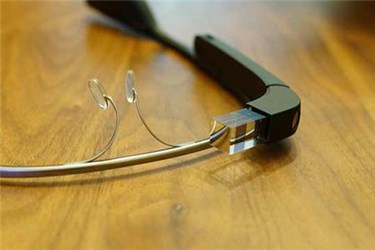Paramedics Use Google Glass While Transporting ER Patients
By Karla Paris

A hospital transportation provider is testing in-route transmission of patient conditions to hospital doctors who are monitoring the situation via tablet or desktop computer.
MedEx Ambulance Service, a Skokie, IL-based company providing transportation to hospitals and other healthcare sites throughout the Chicago area, is experimenting with Google Glass in an effort to provide better care for patients.
MedEx offers an integrated air and ground ambulance service program. Its air ambulance services are offered through an alliance with Air Methods, a provider of air ambulance services. MedEx uses Zoll’s computer aided dispatch software, which integrates with its on-board computers, GPS/Navigation, tracking, and Zoll E-Series cardiac monitors. Its cardiac monitors enable the transporter to transmit STEMI-12 lead ECGs from the ambulance to the hospital, reducing door to intervention times.
With its already advanced patient transportation capabilities, the venture with Google Glass does not come as a surprise. The company has acquired two pairs of Google Glass installed with software and connected to the Internet, allowing paramedics to transmit live video and audio from an ambulance to a doctor in an emergency room who will be able to watch the video stream on a tablet or desktop computer.
Virtual medical exams where doctors in distant locations evaluate patients online are nothing new. Video consultations have traditionally connected patients in rural areas to specialists at urban medical centers. Google Glass offers the potential to expand video interactions into all corners of the health care industry due to its mobility.
Plans are set to begin testing Google Glass with Advocate Illinois Masonic Medical Center in Chicago later this month, but before Illinois Masonic can take part in the MedEx test Google Glass has to be cleared for use by the hospital's legal department. Any software that sends patient information to a doctor, hospital, or other health care provider must comply with federal regulations that protect the privacy of personal health data.
Out of the box, Google Glass does not comply with the federal privacy law, known as the Health Insurance Portability and Accountability Act. But Pristine Inc., a startup based in Austin, Texas, has customized the device for the medical profession in a way that the company said meets data security and patient privacy standards.
SOURCE: The Chicago Tribune
